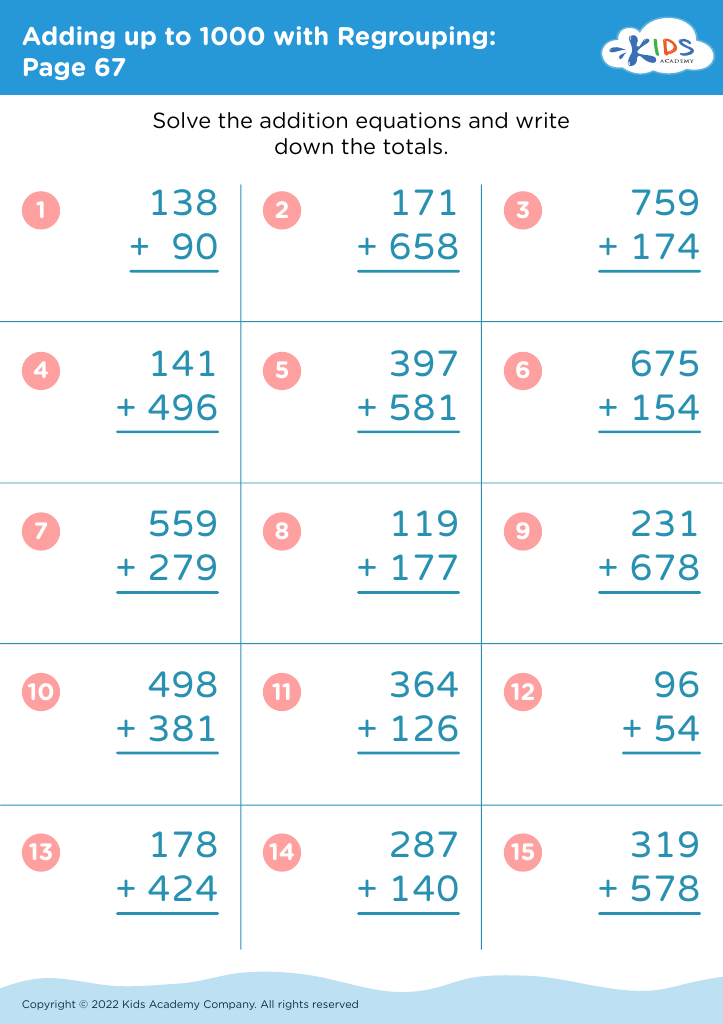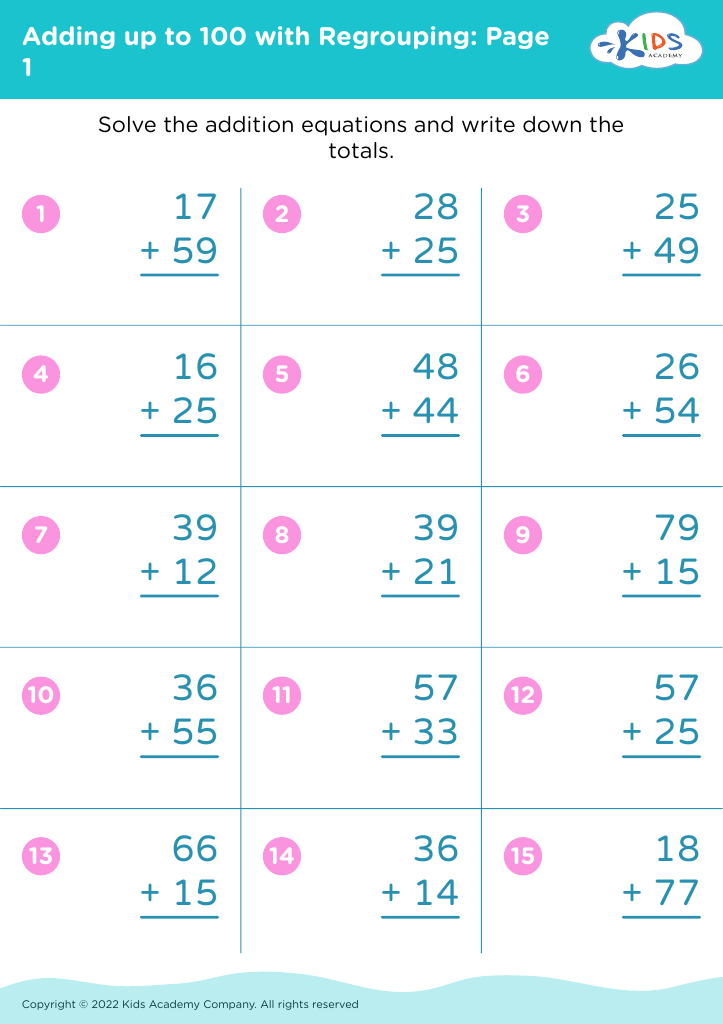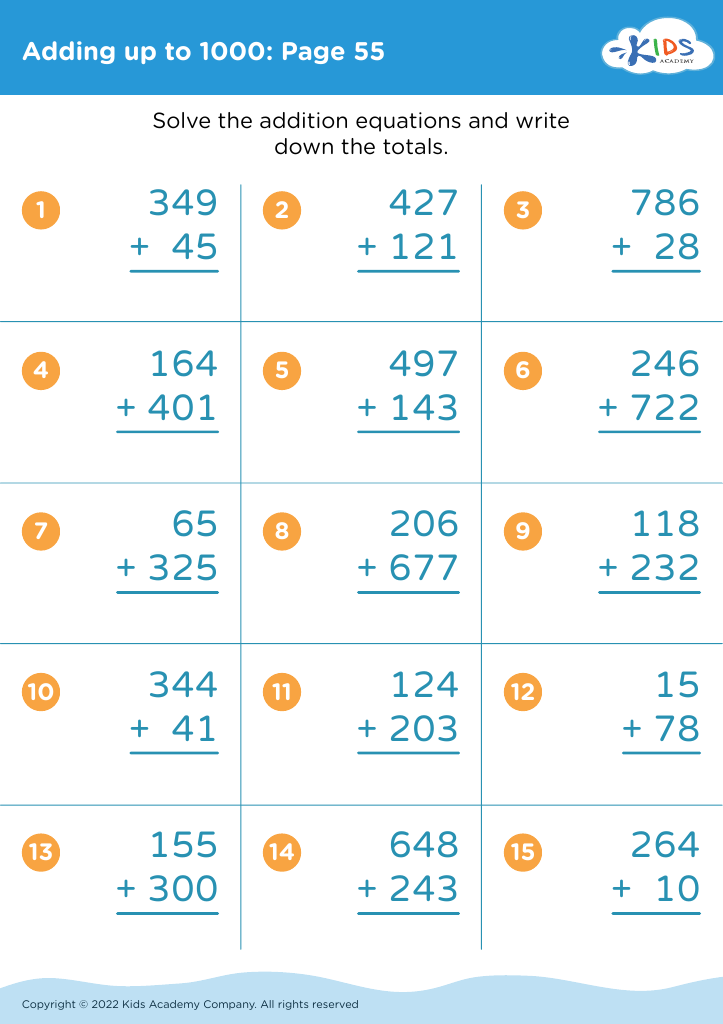Logical thinking development Worksheets for Ages 8-9
15 filtered results
-
From - To
Explore our engaging Logical Thinking Development Worksheets for children ages 8-9! Designed to enhance critical thinking and problem-solving skills, these worksheets offer a variety of fun activities that challenge young minds. With creative puzzles, pattern recognition exercises, and logic games, kids will enjoy honing their reasoning abilities while building confidence in their analytical skills. Ideal for both classroom use and at-home learning, our resources cater to different learning styles, making logical thinking accessible and entertaining. Help your child excel in their cognitive development today with our thoughtfully crafted worksheets that ignite curiosity and foster a love for learning!
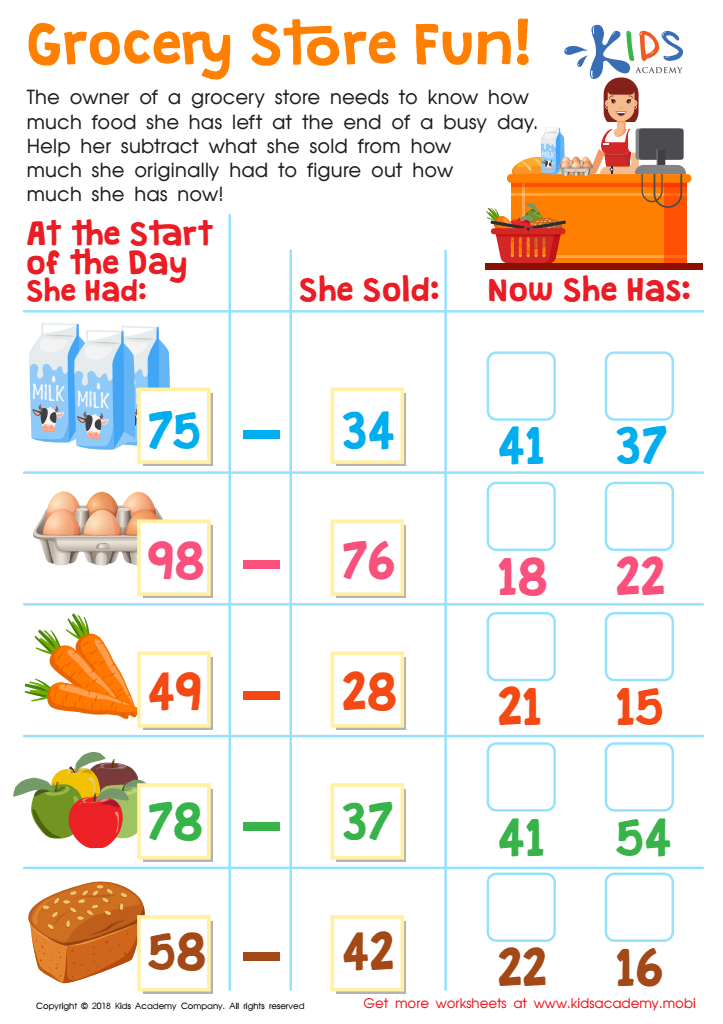

Grocery Store Fun! Worksheet
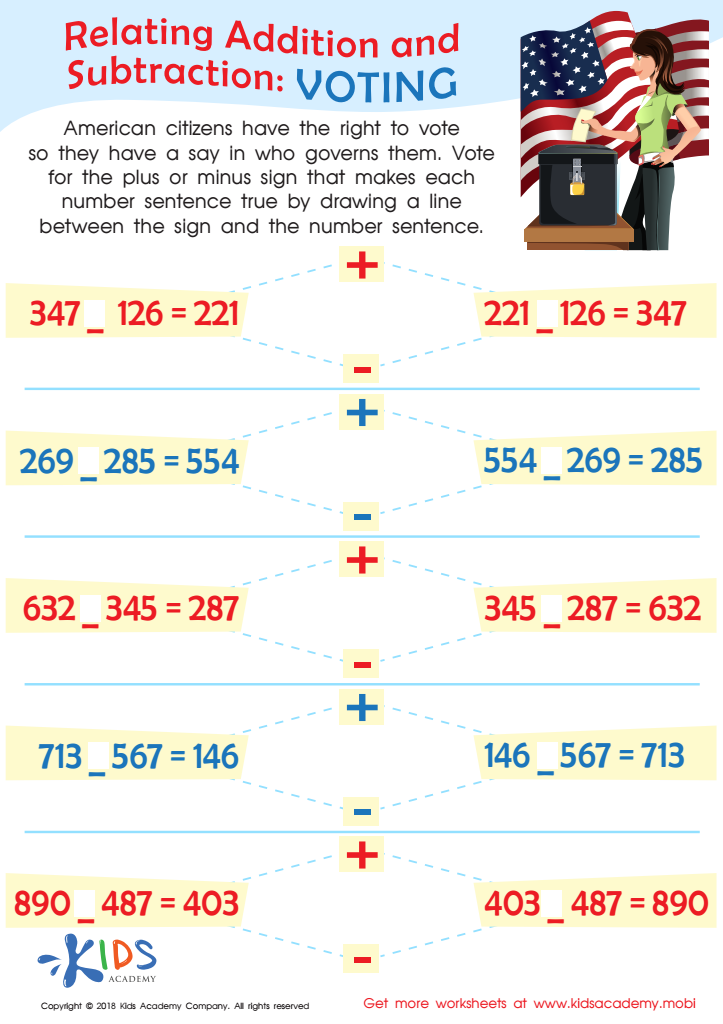

Voting Worksheet


Tricky Problems Worksheet: Part 2
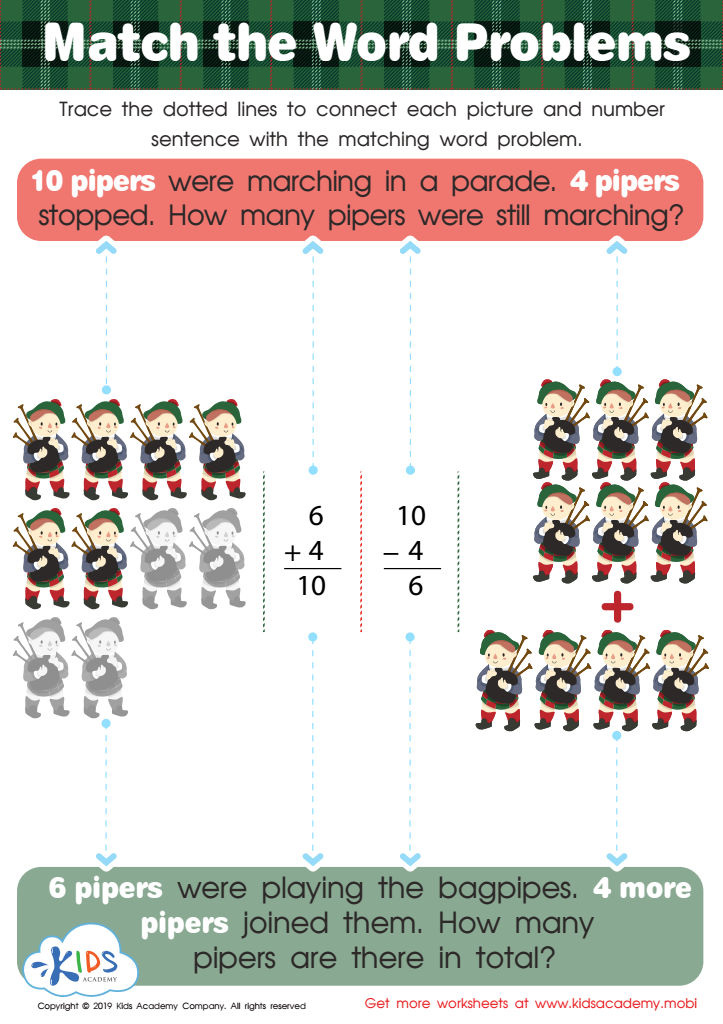

Match the Word Problems Worksheet
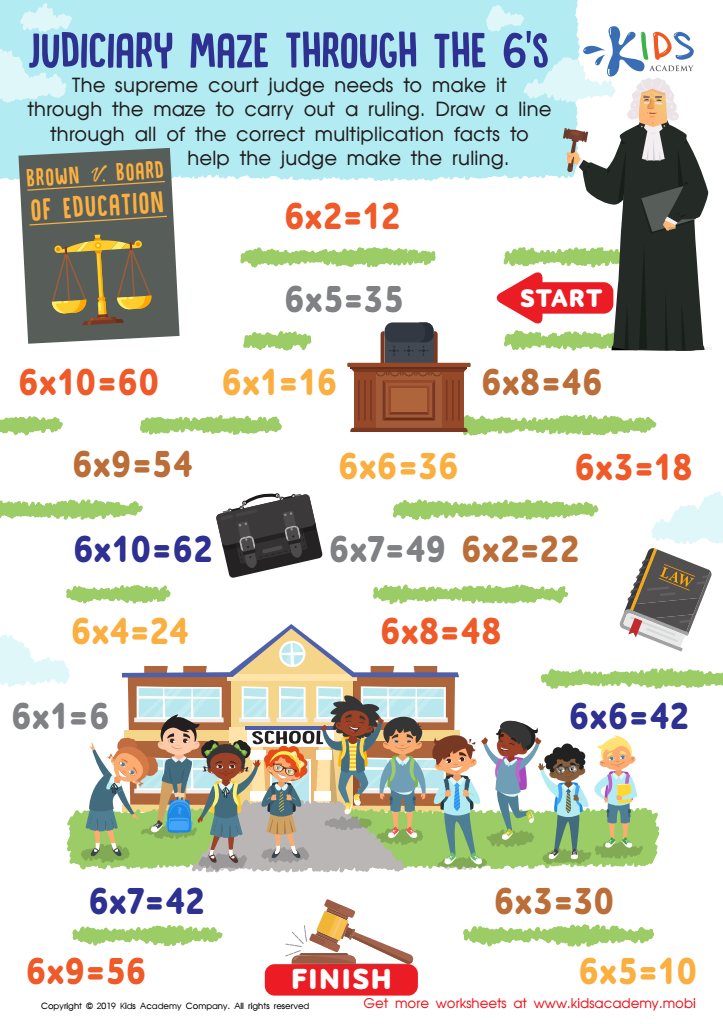

Judiciary Maze Through The 6’s Worksheet
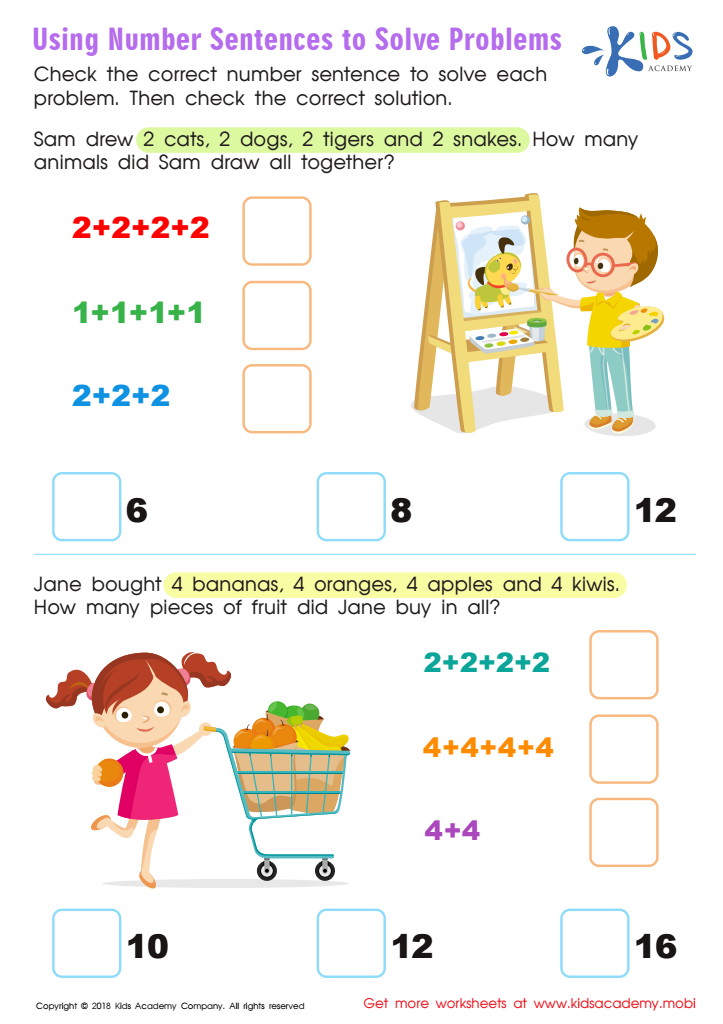

Using Number Sentences to Solve Problems Worksheet
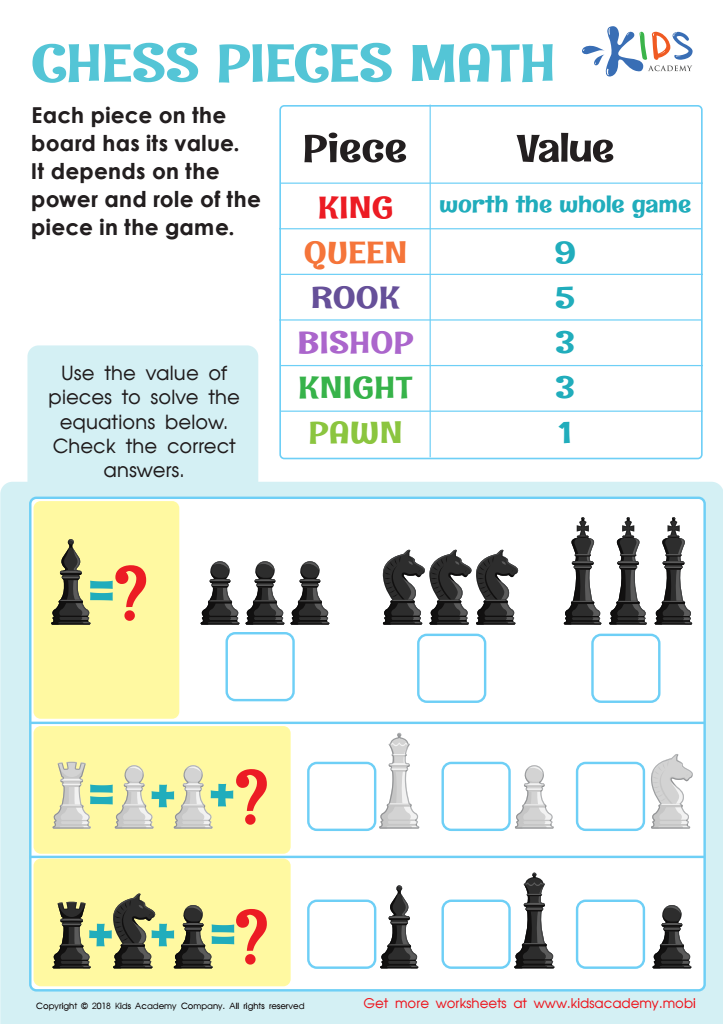

Chess Pieces Math Worksheet
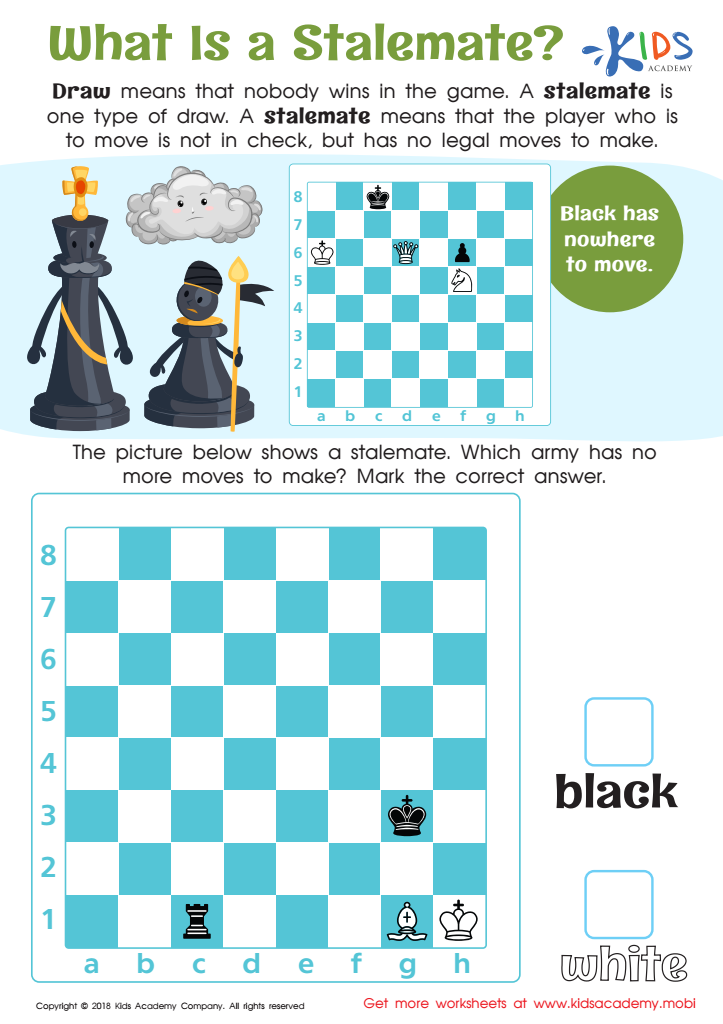

What Is a Stalemate? Worksheet
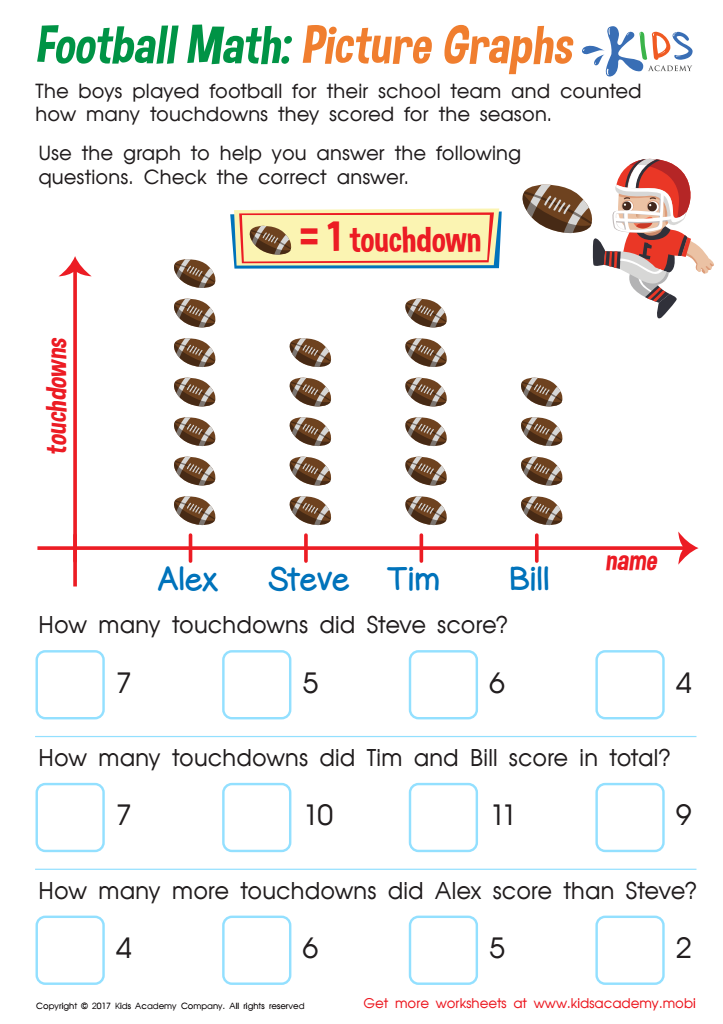

Football Math Worksheet
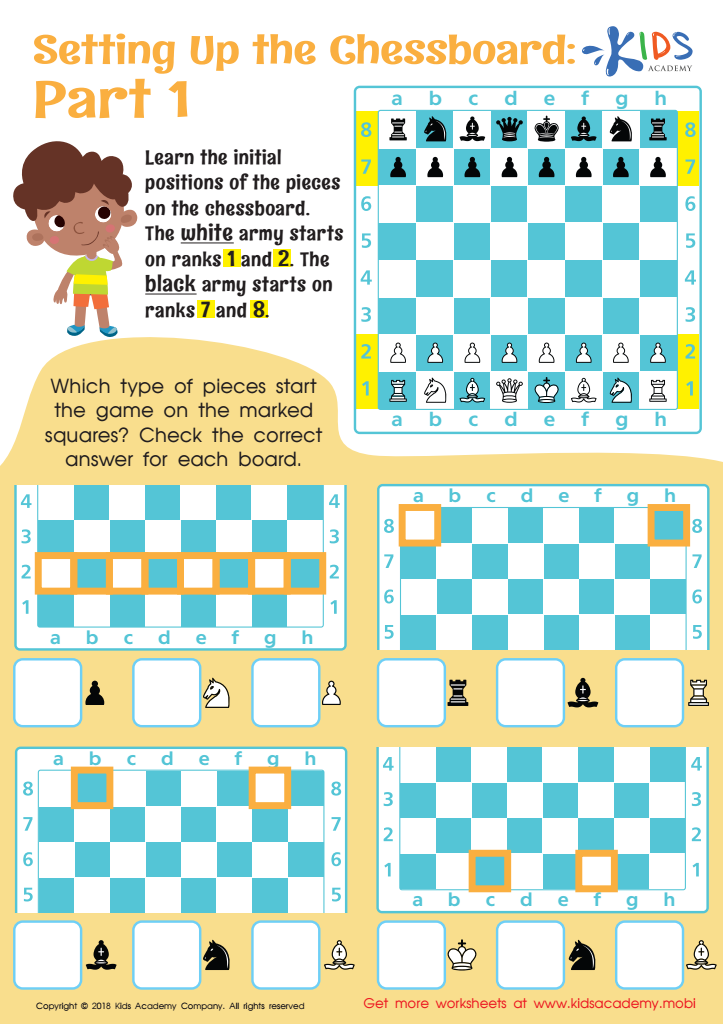

Setting up the Chessboard: Part 1 Worksheet
Logical thinking is a crucial skill for children aged 8-9, as it forms the foundation for critical thinking, problem-solving, and decision-making in everyday life. At this stage, children are expanding their cognitive abilities and learning to process information more systematically. By nurturing their logical thinking skills, parents and teachers help children make connections between concepts, analyze situations, and draw sound conclusions.
Engaging in activities that promote logical reasoning enhances children's mathematical abilities, science understanding, and even reading comprehension. For example, puzzle-solving, pattern recognition, and strategic games encourage children to think methodically and to test hypotheses, building their confidence in tackling complex problems.
Additionally, developing logical thinking fosters independence and resilience, equipping children with the tools to face challenges both academically and socially. It encourages them to question, explore, and articulate their thoughts clearly, which is essential in communication and interpersonal skills.
Overall, the emphasis on logical thinking at this developmental stage prepares children for future academic success and empowers them to navigate the world with greater clarity and confidence. Both parents and teachers play a vital role in guiding this growth through supportive and enriching experiences.
 Assign to My Students
Assign to My Students

